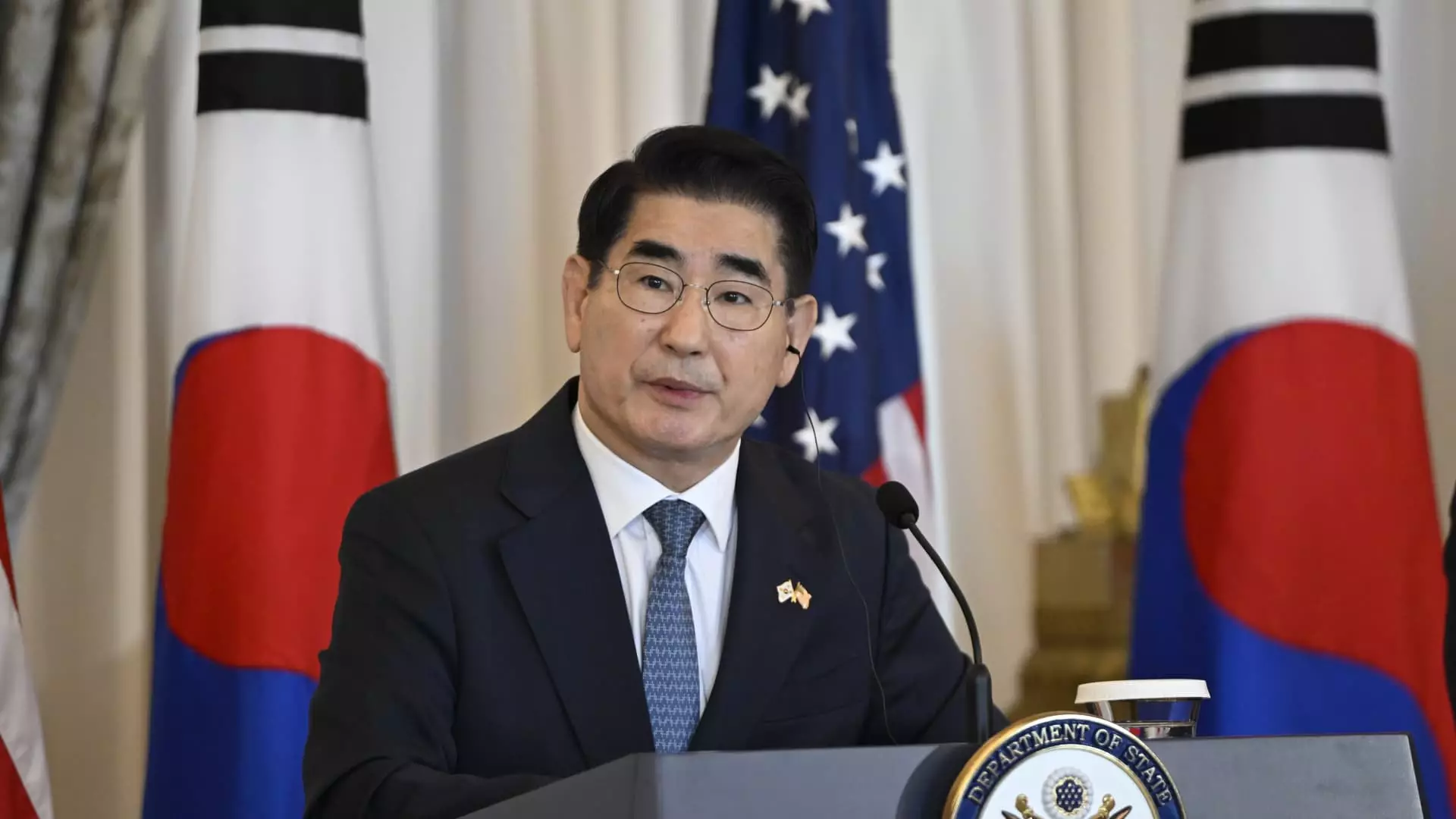The political landscape in South Korea has recently seen significant turbulence following President Yoon Suk Yeol’s acceptance of Defense Minister Kim Yong-hyun’s resignation. In a decisive move, Yoon has nominated Choi Byung-hyuk, the former ambassador to Saudi Arabia, as the new defense minister. Choi, a seasoned former army general, embodies Yoon’s vision for a disciplined and principled military leadership. Yoon’s chief of staff, Chung Jin-suk, praised Choi’s commitment to duty and adherence to regulations, indicating a desire for stability at the helm of the defense ministry.
Choi’s appointment arrives in the wake of a controversial decision by Kim Yong-hyun that nearly plunged the nation into political chaos. Kim reportedly urged President Yoon to declare martial law in response to escalating tensions. However, this declaration was promptly rescinded after intense backlash and a parliamentary vote demanding its reversal. This incident illustrates the precarious balance of power and public sentiment in the South Korean political arena.
The martial law declaration, albeit short-lived, has ignited a firestorm of criticism from both the public and political opposition. The main opposition party, the Democratic Party, has labelled Yoon’s actions as tantamount to treason. This dramatic framing highlights the deep divisions within South Korea’s political factions and underscores the potential for impeachment proceedings against Yoon that could emerge in the wake of this debacle.
As the parliamentary motion for impeachment gains traction, it raises pertinent questions about the stability of Yoon’s administration. Given that his party has vowed to oppose the impeachment process, the scenario sets up a potential standoff, revealing the unpredictable nature of South Korean politics. Political analysts are watching closely as the situation unfolds.
Choi Byung-hyuk’s ascension to the role of defense minister is not just a routine appointment; it signifies a broader strategy by President Yoon to regain control and restore public confidence in his government. The choice of Choi, known for his principled stance and dedication, signals a potential pivot towards a more stable governance approach amidst the ongoing political turmoil.
Choi’s background in the military and diplomacy will likely play a critical role as he navigates the challenges ahead. His experience could prove invaluable in managing both domestic unrest and international diplomatic relationships. The upcoming weeks will be crucial as Choi steps into his new role and attempts to implement strategies aimed at reinforcing national security while simultaneously addressing the contentious political climate.
South Korea stands at a pivotal junction, with the recent developments in its defense leadership reflecting deeper political currents within the society. Transitioning from Kim Yong-hyun to Choi Byung-hyuk might stabilize the Ministry of Defense, but the looming specter of impeachment proceedings against Yoon continues to threaten governmental stability. The unfolding drama encapsulates a moment of reflection for the nation, inviting citizens and political leaders alike to consider the implications of recent actions and the necessity for unified governance in these testing times. As South Korea moves forward, the nation must balance principled leadership with public trust to ensure a capable response to both internal and external challenges.


Leave a Reply